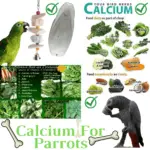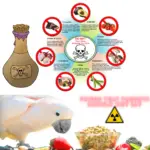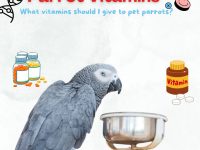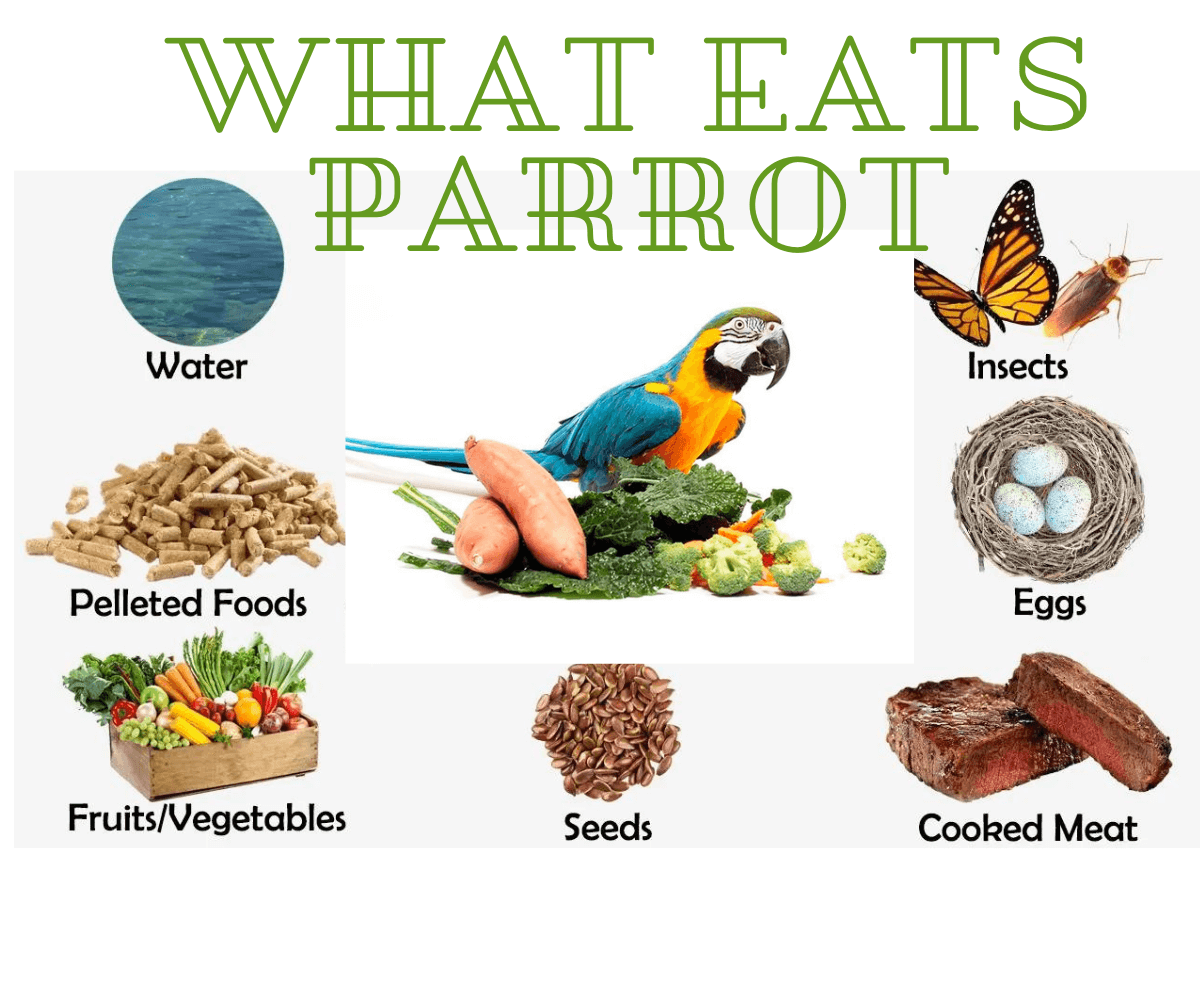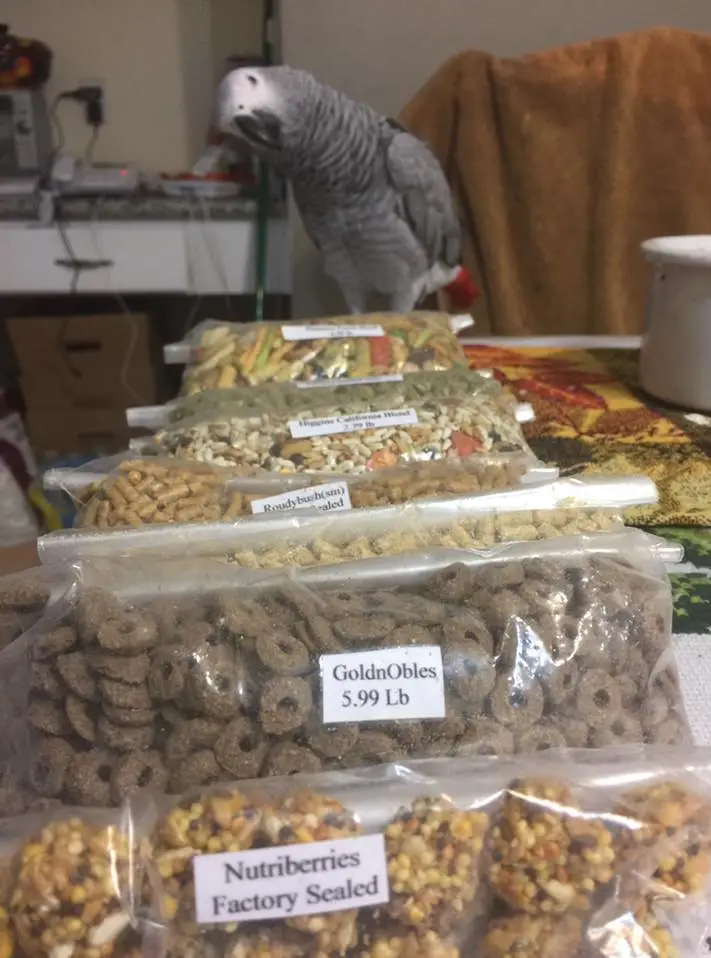What eats parrots: An unbalanced or incomplete diet is a common problem in pet birds and is a relatively common cause of illness. There is a lack of scientific studies on bird nutrition, especially when it comes to different species.
Although our avian nutrition is still in its infancy, most experts agree that a good diet for parrots begins with a diet formulated with a variety of foods added as supplements. Lories and Lorikeet have special needs and are discussed later in this article.
Parrot diet formulation
A few years ago, realizing that many parrots were suffering from nutritional deficiencies, companies started producing pelletized diets for pet birds.
These diets are made from various foods. Including cereals, seeds, vegetables, and fruits, enriched with vitamins and minerals. They are cooked in dumplings or in various other extruded forms.
These foods provide a balanced and nutritious diet and prevent feather dusters from choosing their favorite foods and leaving the rest. However, many parrots, especially those who have started a seed-based diet, are not easily persuaded to follow a formulated diet.
In addition, the formulated diets, although they are well balanced, do not provide the variety and stimulation that many pet birds need in their diets. After all, eating the same thing the next day would be boring for anyone. Therefore, the pellets can be considered the ” staple ” of the parrot’s diet, accounting for 50-60% of what the bird eats.
what eats parrot
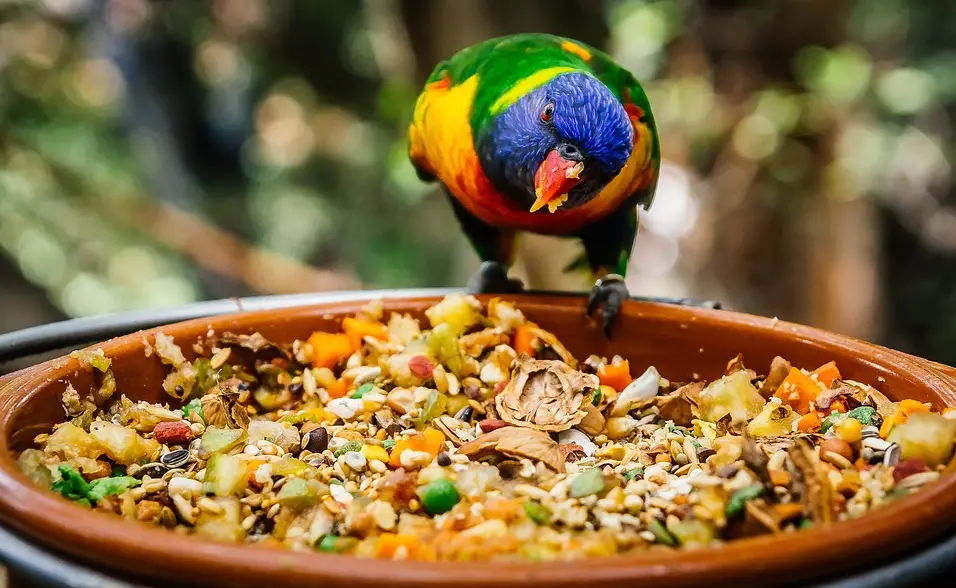
As these diets become more accepted and popular, manufacturers are producing lines formulated for particular species and also for health management. For example, low-calorie diets for weight management.
As we have already mentioned, these diets come in different forms. Ranging from large chunks to crumbs, you may have to experiment to find the type of diet your tropical bird prefers.
While we better understand the nutritional needs of birds, the recommended diet for pet parrots includes a variety of nutritious, freshly prepared foods. All this is in addition to a formulated diet (granules) and a small percentage of seeds.
Remember that most freshly prepared foods spoil easily and should be removed from the cage after a few hours. If your parrot doesn’t readily accept new foods, try offering them early in the morning or in the evening. These are the times when birds are naturally foraging for food in nature.
Seeds
For most pet birds. Especially parrots and parakeets. Particularly in vitamin A and calcium, and is too high in fat. This is not to say that seeds have no place in the diet of birds.
But many birds come to prefer them to the exclusion of other healthy choices and can be picky when it comes to trying a varied diet.
Some parrots even pick a few favorites from a seed mix, further reducing the nutritional balance of the diet. When it comes to the diet of parrots, consider seeds a bit like junk food: birds love them, but they are not the healthiest choice.
For most parrot species, the seeds should only make up about 10% of the diet. Some species, such as parakeets and cockatiels, are naturally seed eaters and can tolerate a higher percentage of seeds in their diet.
Vegetables
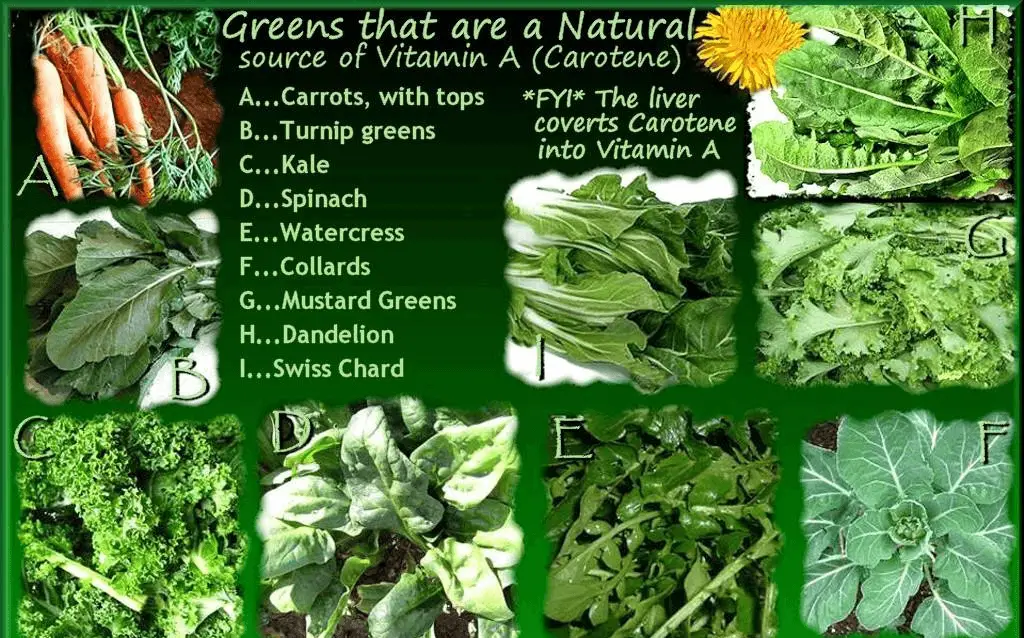
what eats parrot
Fresh vegetables are a great addition to your parrot’s diet. However, not all vegetables are equally nutritious. Vegetables like celery and lettuce are high in fiber and water but aren’t that nutritious. Dark yellow and leafy green vegetables are usually excellent choices.
You can offer vegetables in different forms to entice the bird to try them: fresh, whole or cut, or cooked and fed slightly warm. Try hanging the vegetables on the side of the cage using tongs, or offer them in pieces that larger parrots can pick up with their feet to gnaw on.
what eats parrot
You might have to get creative to get them to try things. The goal is to get your parrot to eat as many different kinds of vegetables as possible.
Try varieties of vegetables such as:
- Carrots (roots and heads)
- Sweet potatoes
- Cabbage leaves, kale, turnip greens, mustard greens, Swiss chard, beet greens and dandelion greens
- Green beans
- Sweet red, yellow, and green peppers
- Cauliflower
- Broccoli (head and leaves)
- White sugar or snow peas
- Squash
- Romaine or green/red lettuce (small quantities)
- Corn (grains, or ear for large birds)
- Cucumber
Remember, no lawyer!
Fruits
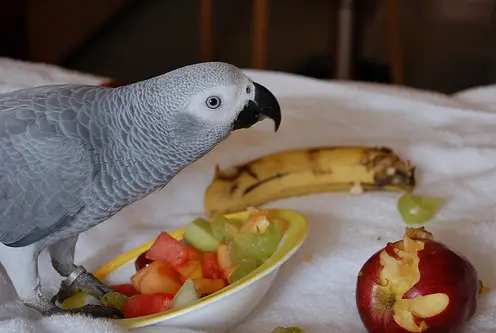
Again, you want to feed a wide variety, not just the select few. Many parrots love fruit and abuse it. Limit yourself to a small part of the overall diet.
As with vegetables, many fruits with deeper colors contain more nutrients. It is good to try and feed a variety of more tropical fruits that parrots may be exposed to in their original habitat. However, make sure they don’t eat apple pits or seeds, as these can be poisonous.
Try fruits such as:
- Mango
- Papaya
- Kiwi
- Berries
- Grenade
- Pineapple
- Cranberries
- Cantaloupe (without the rind), other melons
- Peaches
- Nectarines
- Apricots
- Bananas
- Oranges
- Cherries
- Pears
- Grapes
- Apples
- Grapefruit
- Tangerines
To provide your parrot with fruits or vegetables, we offer this special cage available in our collection of feeders.
Parrots can also be fed a variety of nutritious grains . Like cooked brown rice, quinoa, oats, wheat, barley, and pasta. Whole wheat bread and unsweetened whole wheat cereals may also be offered.
Cooked legumes like beans, lentils, and peas are a great addition to their diet. Birds may also be offered small amounts of lean, well-cooked meat and poultry, as well as cooked eggs.
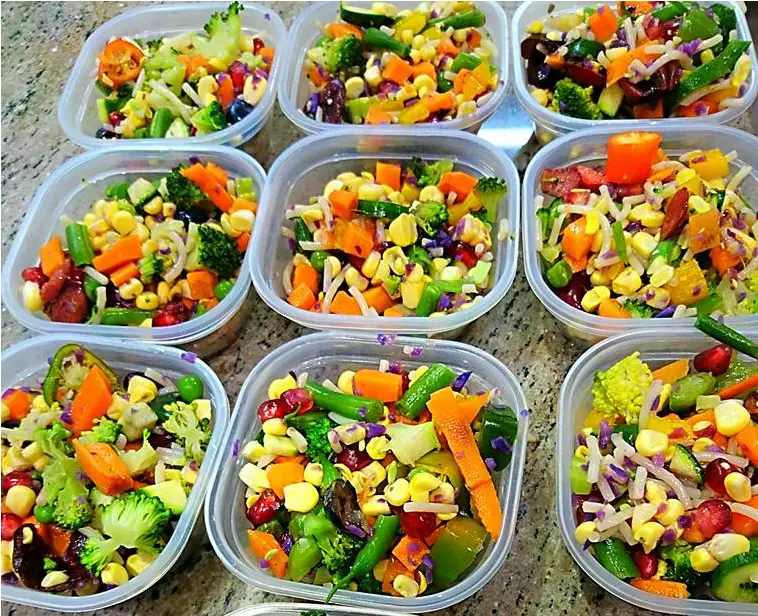
what eats parrot
Sprouted seeds
Sprouted seeds are a great source of nutrition for pet birds and a great way to supplement green vegetables. The freshly sprouted seeds are a nutritional gold mine. Because the seed mobilizes its nutritional content in a highly digestible and bioavailable form as soon as it begins to grow.
Sprouted seeds are rich in vitamins and minerals as well as enzymes and antioxidants. Some consider them to be nature’s finest food. Either way, they’re a great way to give a nutritional boost and most parrots love them.
Vitamin and mineral supplements
It is usually a good idea to offer a cuttlefish bone (for extra calcium). But otherwise, vitamin and mineral supplements are not necessary if you have a balanced diet based on formulated foods supplemented with a variety of nutritional foods prepared at home. Additional supplements should only be given on the advice of your veterinarian.
Foods to Avoid
Avoid unhealthy foods and foods high in fat, salt or sugar. Birds are also lactose intolerant, which is why dairy products should be avoided. If you’d like to learn more about what foods to avoid for your parrot, here’s a full article: Poisonous Foods for Parrots.
Chocolate, avocado, and rhubarb are toxic to birds. Of course, do not give drinks that contain caffeine or alcohol. Avoid processed meats or other foods high in nitrates, nitrites, sulfites, or monosodium glutamate (MSG). Onions, lima beans, broad beans, white beans, fruit stones, and apple seeds should also be avoided.
Warning
Some experts and owners are concerned about giving peanuts with their shells because they may be contaminated with the Aspergillus fungus.
This can cause respiratory diseases and produce a toxin (aflatoxin, a potent carcinogen). If you feed raw peanuts, obtain human-grade peanuts and do not feed them if they show signs of mold.
Shelled, blanched (unsalted, of course) peanuts are good. All food should be inspected and discarded if there are signs of mold in any way.
Parrots Unusual Eating Habit | Peru’s Wild Kingdom
SOURCE: Nat Geo WILD

